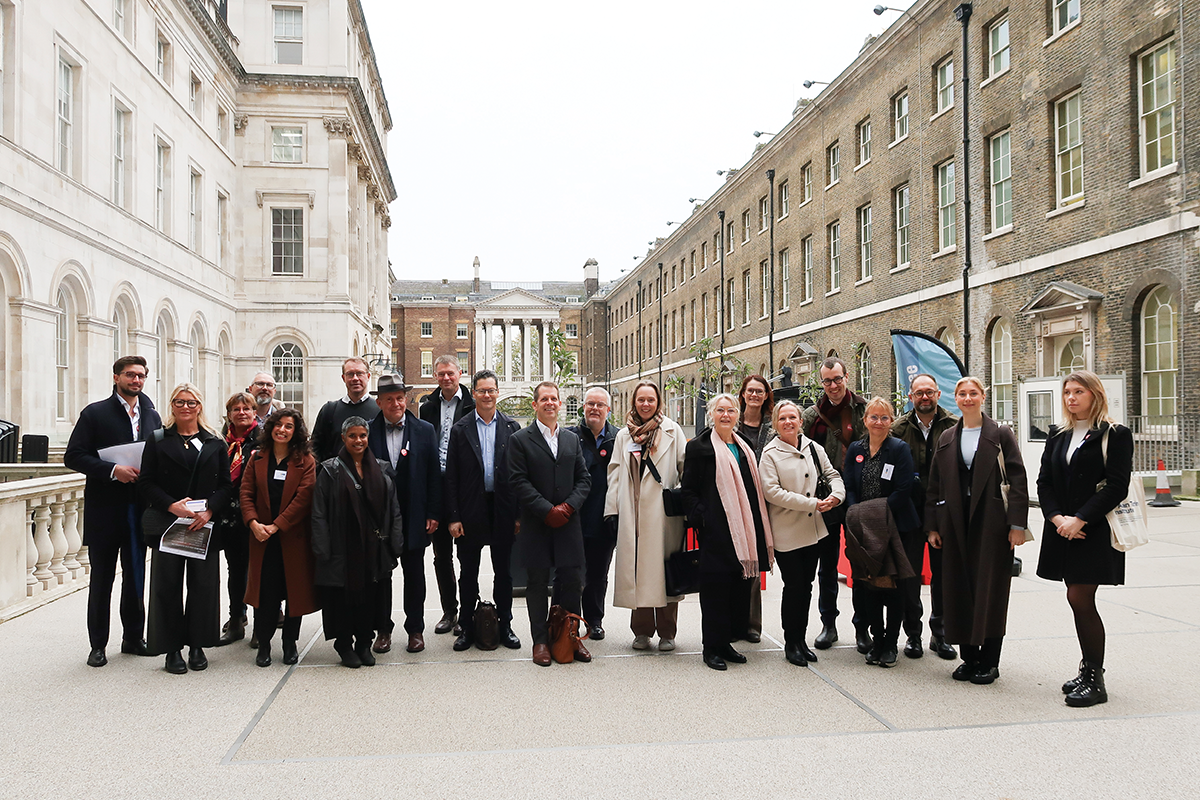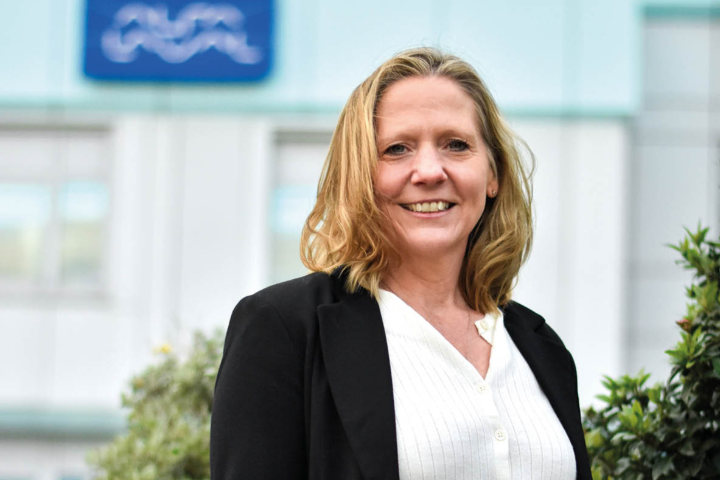
AI collaboration ignited: Swedish delegation in the UK
15 February 2024
In mid-November the SCC, together with the Office of Science and Innovation at the Embassy of Sweden in London and the British Embassy in Stockholm, invited a group of representatives from Swedish universities and authorities to London to explore the AI-landscape in the United Kingdom. The delegates spent two full days meeting with AI focused universities, research organisations and other relevant stakeholders – with the purpose of exchanging knowledge and promoting partnerships between the countries.
Sweden and the UK share a rich history of trade relations and research collaborations. Not only being the home to four of the world’s top ten universities, the UK can also pride itself on its thriving technology sector, worth over one trillion dollars. Given its impressive reputation in higher education and position as important research partner to Sweden, the interdisciplinary AI-focused delegation visit, taking place 15-16 November, was initiated to nurture the Swedish-British relationship whilst creating opportunities for collaboration in research and academia.
“I wanted to create a concept with the purpose of getting the right people together with maximal output and value for all participants,” says Marika Amartey Kaliff, Science and Innovation Counsellor, Embassy of Sweden London, UK.
The Office of Science and Innovation was established by the Swedish government in 2022, and is an instance of the Embassy committed to promote strategic collaborations between Sweden and the UK in research, innovation, and higher education. Outlining the concept of the delegation visit, AI was a natural choice of focus according to Marika. “There are many groundbreaking initiatives in both Sweden and the UK that should be showcased and explored. The role of AI in research and higher education is a priority for the UK government and it supports a lot of programmes in this field.”
The UK’s Focus on AI
Reflecting the UK’s commitment to maintaining a global leadership position in AI, the British Prime Minister Rishi Sunak’s ten-point plan for Science and Innovation launched in March 2023 identified AI as one of five critical technologies for the British economy. In November, the UK was also the host of the AI security summit, further highlighting its relevance to the exceptionally topical field. “It is always important to get people together and discuss topics close to heart and get a better awareness of work and progress created elsewhere, in particular for the development of emerging technologies that move extremely fast and require unexpected collaboration,” says Marika.
Marika means that that these types of initiatives should be fruitful for all involved and points out that even the most leading experts in the field will reach new insights by learning and sharing with others. Sharing this vision on the value of exchanging knowledge and expanding networks is also highlighted by Thomas Schön, delegate and Beijer Professor of Artificial Intelligence at Uppsala University: “Although many of us have our own contacts with researchers and individuals that we will continue working with, trips like this establish connections at a different level within representatives in organisations. This is really useful in larger collaborations and can be very hard to do on your own.”
Insights in AI operations across disciplines
Partnering up with its equivalent institution at the British Embassy in Stockholm and the Business Services team at the SCC, the Office of Science and Innovation at the Embassy of Sweden in the UK invited a total of 16 delegates from 8 Swedish universities and agencies to London to take part in the programme.
Welcomed by a dinner at The Ambassador’s Residence, the delegates got the chance to meet with leaders from academia, industry, and government to kick start the event. Companies focusing on AI such as BlueBear, Synbiosys, Mindfoundry and HN company were also invited, to give their thoughts on what can be done to bridge the gap between the industry and academia.
Then followed a two-day programme, visiting and learning from a number of leading university representatives, focusing on AI in fields spanning all the way from security and defence to music and game-design. The delegation was also given insights into the AI research and innovation ecosystem in the UK, by meeting with organisations and institutes focusing on data-, and life sciences. In total, the days featured presentations and Q&As by 20+ speakers, including Jean Innes, CEO of the Alan Turing Institute, Prof. Deeph Chana, Professor at Imperial College London and Managing Director at DIANA, NATO, and Prof. Steve Hailes, Head of Department for UCL Computer Science.
“We have heard a lot about the universities’ and institutes’ strategies, and how they are planning their research and activities. It is important that we understand the way that universities in the UK and Sweden are functioning when it comes to funding, because it pinpoints where we can meet in collaboration and projects,” says Annika Borgenstam, delegate, Professor in Micro and Nano Structures in Alloys and Vice President for Research at KTH Royal Institute of Technology.
Igniting future partnerships
In a joint leadership statement conducted by the Swedish and British Prime Ministers in June 2023, science and innovation is highlighted as one of the prioritised areas of collaboration between the countries. Hence, going forward, Marika hopes to see more initiatives like these opening doors for cross-national collaborations. “In addition to this strategic agreement, there is a Memorandum of Understanding for the Life Sciences in place between our countries. The UK has also rejoined Horizon Europe which is almost essential for ambitious strategic research collaboration. I would love to see more bilateral activity in all of these areas.”
Agreements such as the ones mentioned above are, according to Marika, great ‘excuses’ to ignite dialogues and create new partnerships for Swedish universities, particularly for the delegates participating in this trip. Not only strengthening historical bonds between the countries, but initiatives like these could also pave the way for a future where international partnerships continue to drive innovation and contribute to the global advancement of AI.
Marcus Bohlin, delegate and Professor in Applied AI at Mälardalen University, comments: “The UK and Sweden are both nations with a very high development of technology, and we have a lot to gain from collaborating even more within the industry and academia altogether. Particularly within expansive fields like AI, where a lot of changes are affecting the society and business in both countries.”
As collaborations between the SCC and the Office of Science and Innovation in London has proven successful in the past, Marika concludes by highlighting the importance of bringing together its competences to create similar initiatives in the future. “We are a small but smart country, and resources are limited. Therefore, it is essential that we utilise our combined skills to add value to the Swedish research and innovation ecosystem.”



